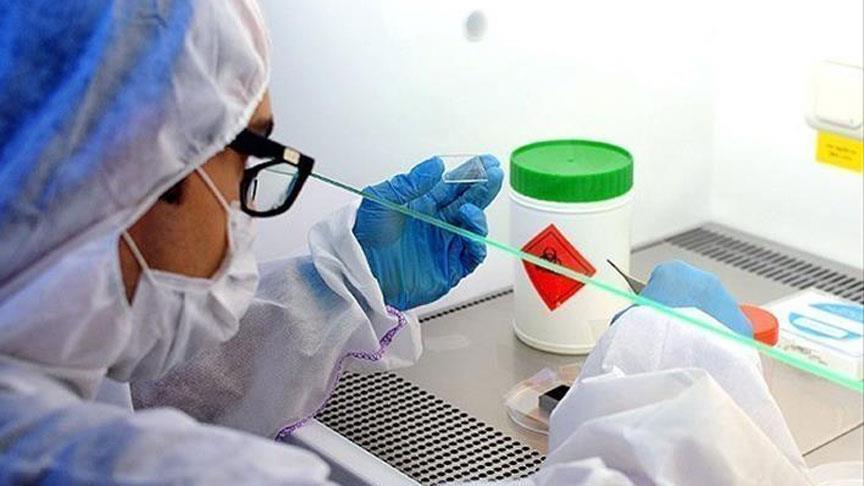Researchers at the Plekhanov Russian University of Economics, together with their Italian colleagues from the University of Catania, have studied the possibility and conditions for the use of film materials based on a biodegradable polymer to create environmentally friendly packaging for food with selective gas permeability.
The problem of processing plastic waste is growing more acute every year, so scientists around the world are making great efforts to develop biodegradable polymers, Axar.az informs citing BBC.
A strong contender for the ideal material is polyhydroxybutyrate (PHB). This polymer is generated by a number of microorganisms, so in nature, there is a natural cycle for ‘processing,' it which makes it suitable for use as a multi-purpose environmentally friendly plastic.
Scientists have investigated two types of PHB based films, obtained through two different technological methods: application of solution and spinning of melt. It turned out that the technology determines the structure and selective gas permeability of polymer films, which is important when packaging perishables. The biodegradability of the material determines its environmental friendliness.
"The selectivity of these materials is determined by their internal structure, which in turn is determined by the technological parameters of producing the films: time, temperature, and pressure. Especially important is the selective gas permeability of the films: they can pass nitrogen, carbon dioxide, water vapor, but not oxygen. This is necessary to preserve foodstuffs and medicines that are generally sensitive to oxygen, which is activated by ultraviolet radiation when exposed to sunlight. These films provide UV protection," says Anatoly Olkhov, a leading researcher at the Promising Composites and Technologies Laboratory.
Selective gas permeability is determined by the ratio of the crystalline and amorphous phases in polymer film, as well as by the presence of a fraction of oriented (dense) and isotropic domains in the amorphous phase. Polymers are capable, under certain conditions, of assuming an ordered or isotropic state. An ordered state implies that macromolecules are oriented in one direction, which is characteristic of crystallites.
An isotropic state implies that there are amorphous macromolecules in the polymer that do not have a preferential orientation. The presence of a fraction of ordered or isotropic domains is determined by the conditions in which the films are produced.
The structure of the films was investigated by differential scanning calorimetry (measurement of heat), scanning electron microscopy, and electron paramagnetic resonance. Scientists also found out that controlling crystallinity helps optimize the mechanical (change in strength, elongation, etc.) and barrier (the change in gas permeability, sorption, etc.) behavior of these materials.
In the future, these films could be used to pack different types of food products and medicines, and be fully biodegradable after use, minimizing the damage to the environment. The decomposition period of these films is from a month to a year.
The researchers looked at 19 trials of fish oil supplements taken during pregnancy involving 15,000 people, finding that the reduction in allergy risk equated to 31 fewer cases of egg allergy per 1,000 children.
They also looked at the impact of probiotic supplements taken during pregnancy and found a 22% reduction in the risk of eczema developing in children up to the age of three.
But they found no evidence that avoiding foods such as nuts, dairy and eggs during pregnancy made any difference to a child's allergy risk.
Fruit, vegetable and vitamin intake appeared to have no impact either, the study published in the journal PLOS Medicine found.
'Further larger trials'
Seif Shaheen, professor of respiratory epidemiology at Queen Mary University of London, said the research added to the growing evidence of a link between diet during pregnancy and breastfeeding and preventing childhood allergies.
"More definitive answers on the possible role of maternal probiotic and fish oil supplementation in the prevention of childhood allergic disease can only come from further large trials which follow up the children to school age," he said.
"If such trials are big enough, they may be able to identify particular subgroups of mothers and children who would benefit most from these interventions."
Dr Louisa James, of the British Society for Immunology, said there were still questions to answer over the impact on severe food allergies, not just a sensitivity to eggs.
"The studies using fish oil supplementation all measured allergic sensitisation to egg as a surrogate measure of food allergy," she said.
"Although sensitisation is necessary for allergies to develop, many children may be sensitised without ever developing any symptoms of allergy and so it will be important to determine if fish oil supplementation can reduce the risk of clinical food allergy."




















































